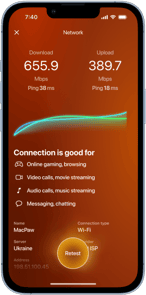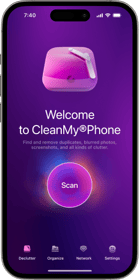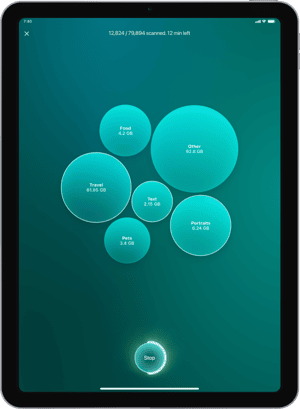Our iPhones have become a bit of a digital lifeline, storing everything from contact info and photos to lengthy documents, audiobooks, and huge music and video libraries, so it should come as no surprise that we’re using more storage capacity than ever.
But what is the difference between the storage capacity on your iPhone and the iCloud storage that you pay a monthly fee for? Is one better than the other? More secure? And does it make sense to buy a large-capacity iPhone if you can keep everything tidy in iCloud?
IPhone storage and iCloud storage are not the same thing. Yes, they work together to ensure that your information is stored safely, but it’s important to know the difference so you can decide how much storage you need, where to store your stuff, and how to avoid running out of space when you need it most.
What is iCloud storage?
Let’s start with iCloud storage, Apple’s online storage service. When you save your data in iCloud, it’s stored in Apple’s secure servers instead of on your device, and as long as you have Wi-Fi or a reliable cellular signal, you can access all of the data in iCloud right from your phone, or any device for that matter, even a PC (as long as you sign in with your Apple ID).
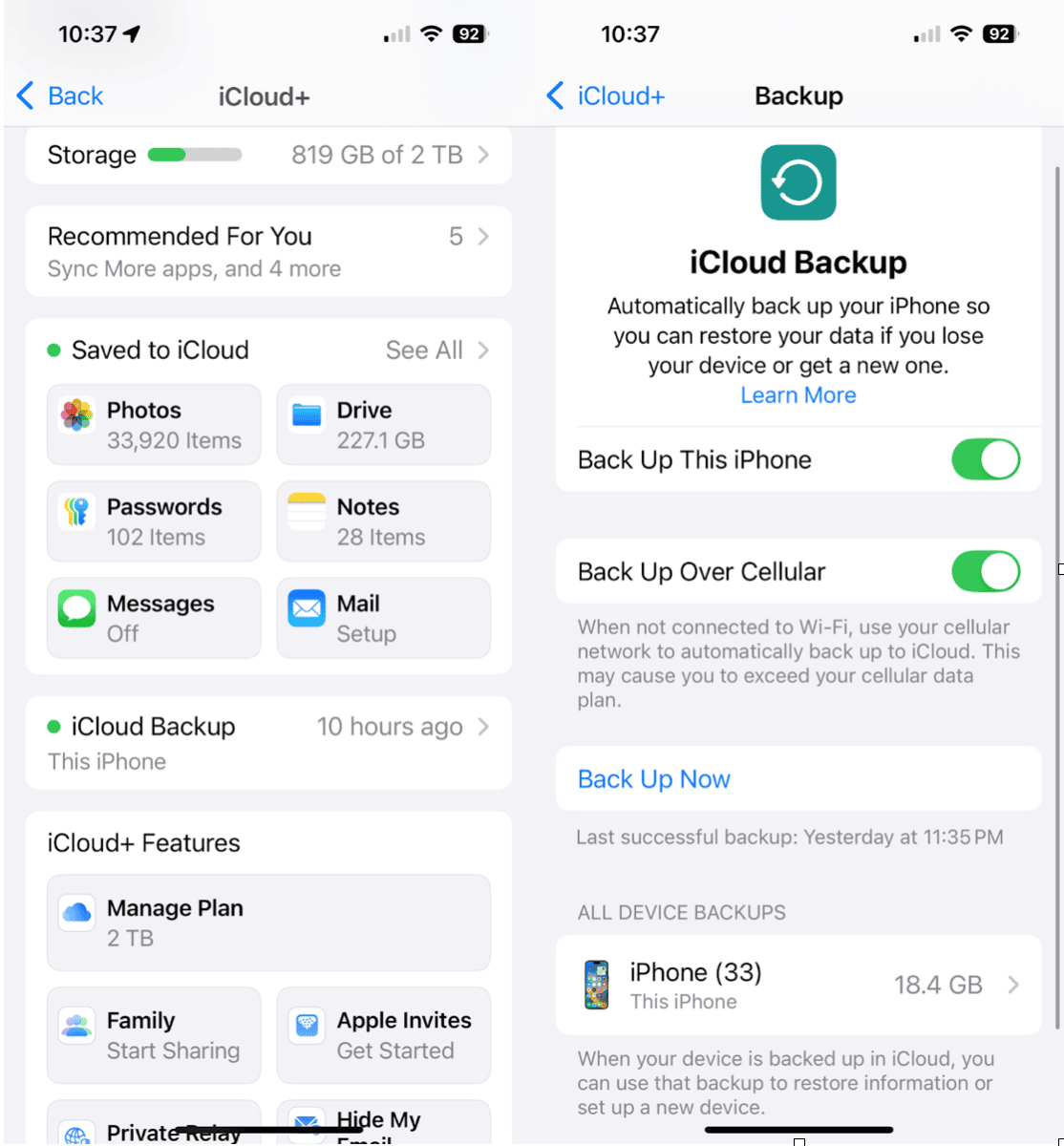
A basic overview of iCloud storage:
- Comes with 5 GB of free storage space shared across all of your devices.
- Can be upgraded for a monthly fee. Plans offer up to 12TB of data storage at costs up to $70 per month.
- iCloud storage is best for storing:
- iPhone/iPad backups
- Photos & videos (via iCloud Photos)
- Files from the Files app
- Documents from apps using iCloud Drive
Messages, Notes, and more (as long as syncing is turned on)
The biggest benefit to iCloud storage is that you’ll free up physical space on your iPhone while keeping your stuff accessible.
What is iPhone storage?
iPhone storage is the physical space on your device itself. It’s where your iPhone saves apps, photos, videos, music, and other files for instant access, even without an internet connection.
When you purchase an iPhone, you can choose your storage capacity based on your needs. A Capacities generally range in sizes between 128 GB and 1 TB. Larger storage capacities come with a larger price tag, but once your iPhone storage is full, you can’t add more storage. Instead, you can delete files you don’t need to save space and reduce clutter, or offload files to iCloud, another cloud-based service, or an external storage device.
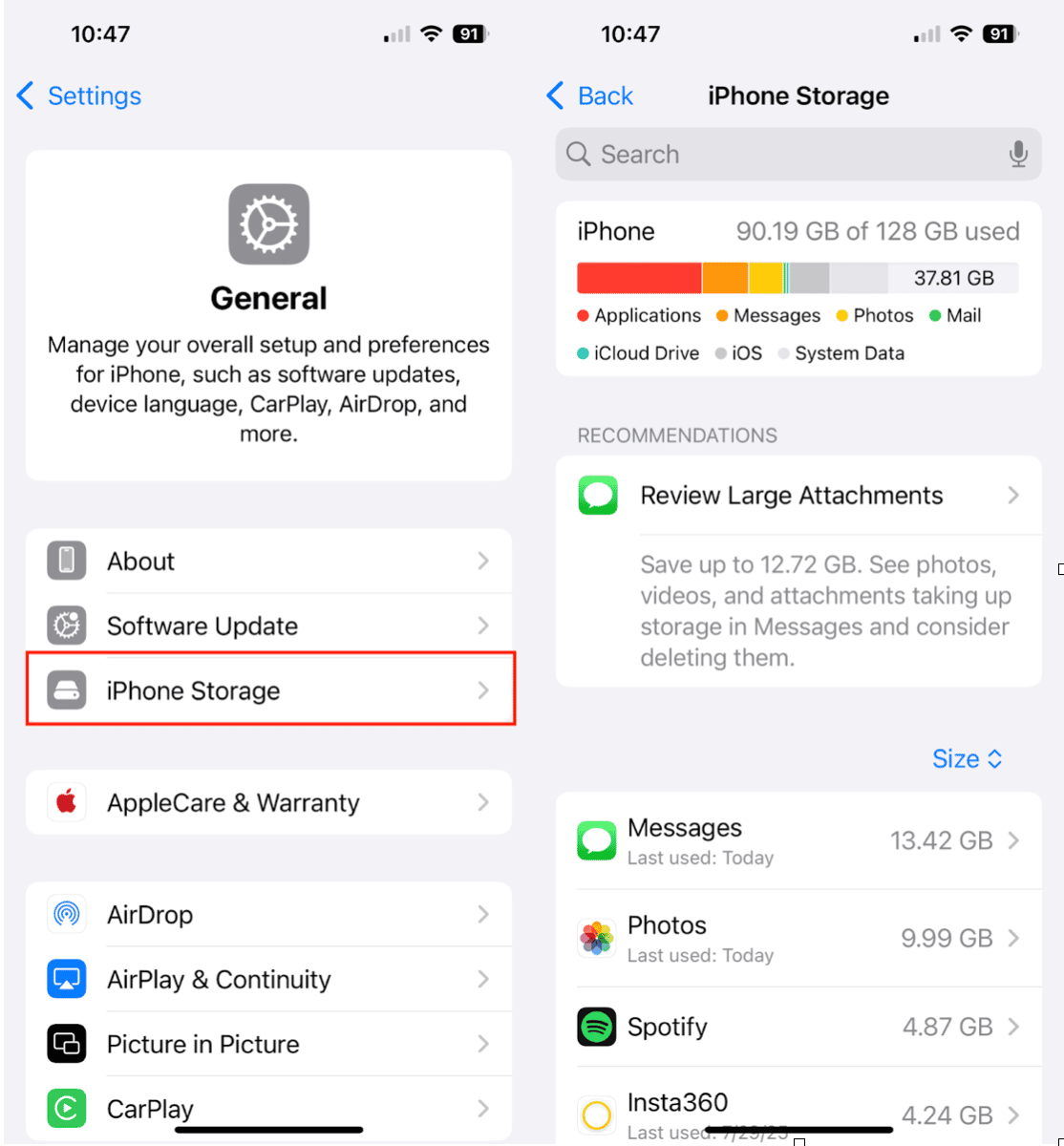
iPhone storage is best for the following:
- Large apps and games
- Music, videos, and files that you need for offline use
- High-resolution photos and videos, especially if you are using your camera for photography without Wi-Fi.
If you’re someone who likes to keep everything on your iPhone without having to rely on Wi-Fi or cellular data, you’ll want to purchase a large-capacity iPhone.
iPhone storage vs iCloud storage comparison chart
This chart outlines the basic differences between iPhone storage and iCloud storage. The takeaway? iPhone storage is your physical space; iCloud storage is your online space.
Feature | iPhone Storage | iCloud Storage |
Where it’s stored | On your device | On Apple’s iCloud servers |
Capacity | Fixed: depends on the iPhone model | Flexible: Can be upgraded up to 12 TB |
Access | Anytime, no internet needed | Requires an internet connection |
Sharing across devices | No | Yes |
Upgradable | No | Yes, with a monthly subscription |
Use cases | Apps, offline content, local files | Backups, syncing, sharing, storage offloading |
Keep your iPhone and iCloud storage clear
Reducing iPhone clutter will reduce the amount of storage you need. It will also make it so much easier to find specific photos, videos, or files. Have you ever tried to find a special memory by searching through 60,000 photos? I promise it’s no fun.
I recommend deleting emails, messages, screenshots, large videos, and photos you don’t need periodically to save space, but even if you dedicate time for digital decluttering, it can still be overwhelming.
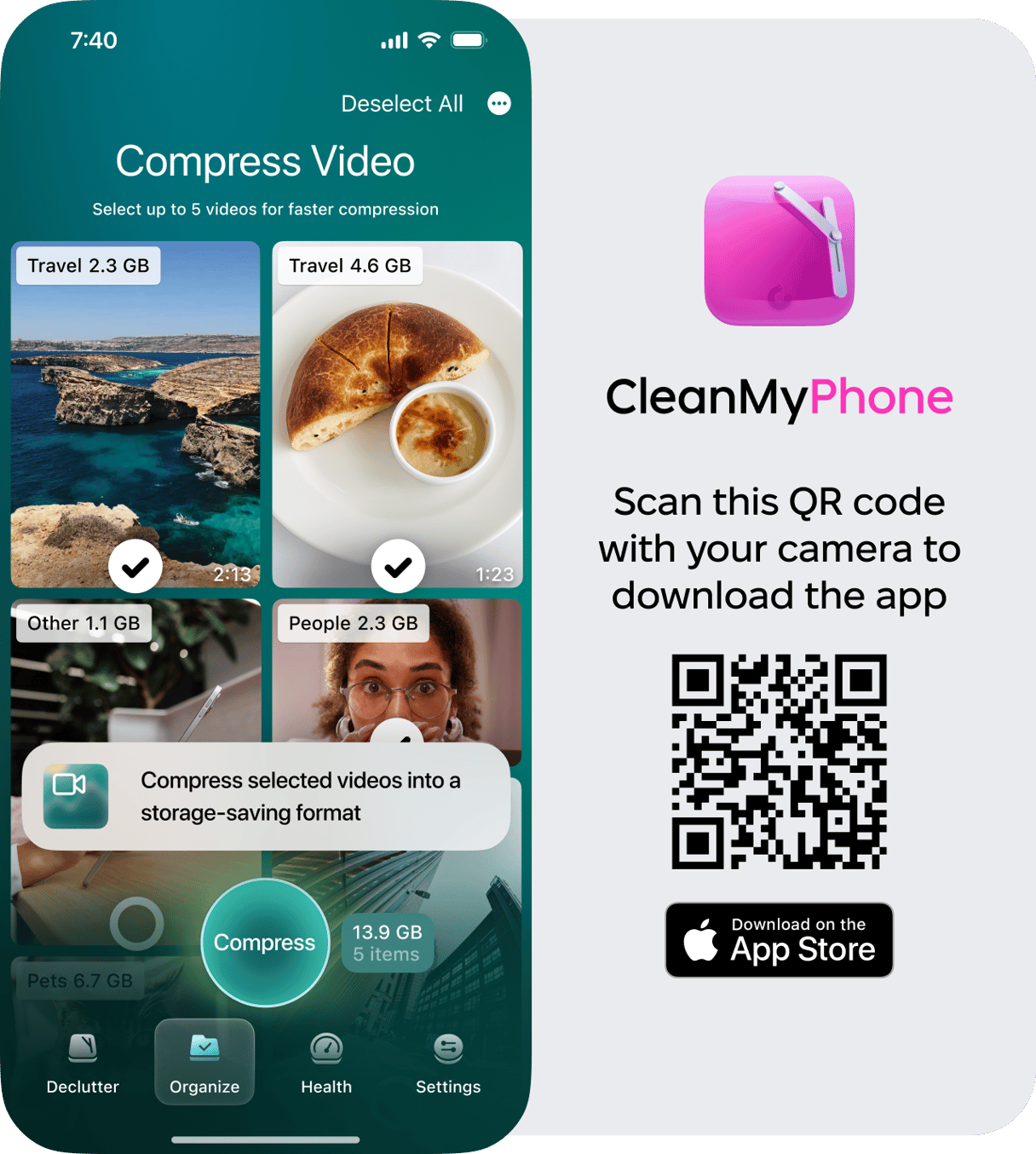
That’s where CleanMy®Phone comes in. This handy (and affordable) app allows you to:
- Quickly find and remove large videos hogging space (or compress them)
- Identify duplicate or similar photos you don’t need
- Delete old screenshots you forgot existed
- Organize your photo library so it’s not gobbling up unnecessary storage
A quick declutter session can free up gigabytes in minutes—keeping both your iPhone and your iCloud storage breathing easy.
When to use iCloud storage?
iCloud storage is great for automatically backing up your iPhone. Your data remains safely in the cloud, even if you lose or break your iPhone. Here are a few more reasons why I recommend using iCloud storage.
- To access files across multiple devices without manually transferring them. It’s especially useful when you have multiple Apple devices. You can see your files, photos, and messages on your iPad, MacBook, and your iPhone, making your digital life so much easier.
- To store full-resolution photos and videos while keeping smaller versions on your iPhone. Those high-quality pics are stored safely in the cloud if you ever need them for printing or sharing.
- To free up space on your device without deleting files permanently. Instead of thinking about whether you’ll need something in the future, you just file it away in the cloud.
If you’re often connected to Wi-Fi and like the idea of your data being protected without much thought, iCloud will work fabulously for you.
When to buy an iPhone with a large storage capacity?
Keeping all of your files safely in iCloud is great, but it can also be expensive if you don’t clear the clutter regularly. Here are some reasons to go with a large-capacity iPhone instead (or in conjunction with) an iCloud plan.
- If you shoot a lot of 4K videos or RAW photos without access to Wi-Fi to move files to the cloud during a shoot.
- If you play large, graphics-heavy games.
- If you want offline access to music, movies, photos, or work files.
- If you travel frequently without a reliable internet connection.
- If you don’t want to pay for a monthly iCloud subscription.
More storage space on your iPhone will require a higher upfront cost, but it’s a one-time expense, and perfect for people who don’t want to rely on an internet connection to access their files.
When trying to decide which storage solution is right for you, remember: your iPhone storage is your phone’s built-in hard drive, easy to access all the time. iCloud storage is your personal online locker, keeping your data safe but less accessible.
Both have their strengths, and using them together smartly means you’ll have access to the files you need, and your data will be safely stored in case of an iPhone accident.
No matter what method you use to store your files, take time periodically to clean your clutter with CleanMy®Phone. Less data means you’ll spend less money on a storage solution and less time hunting down missing files.




